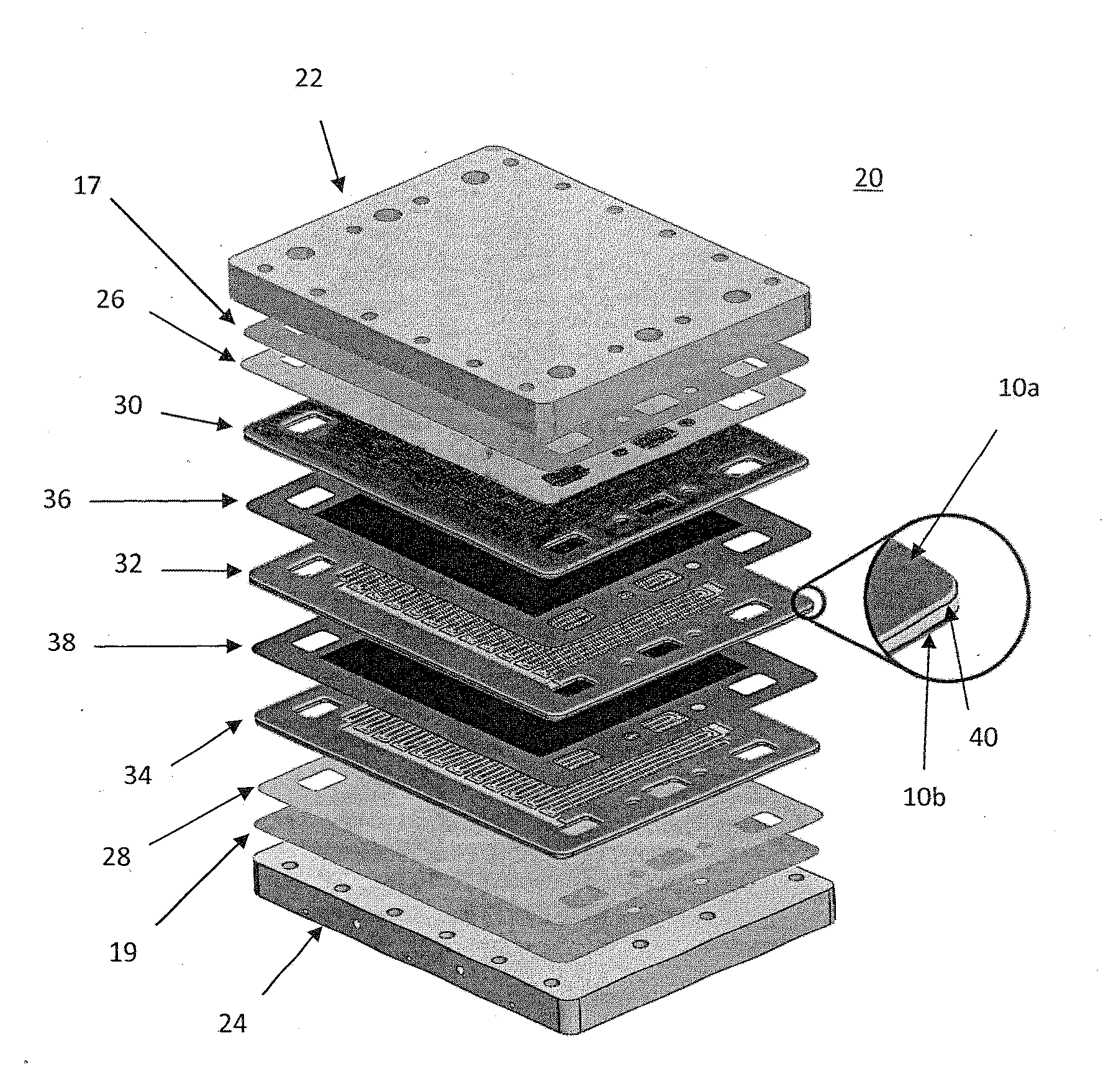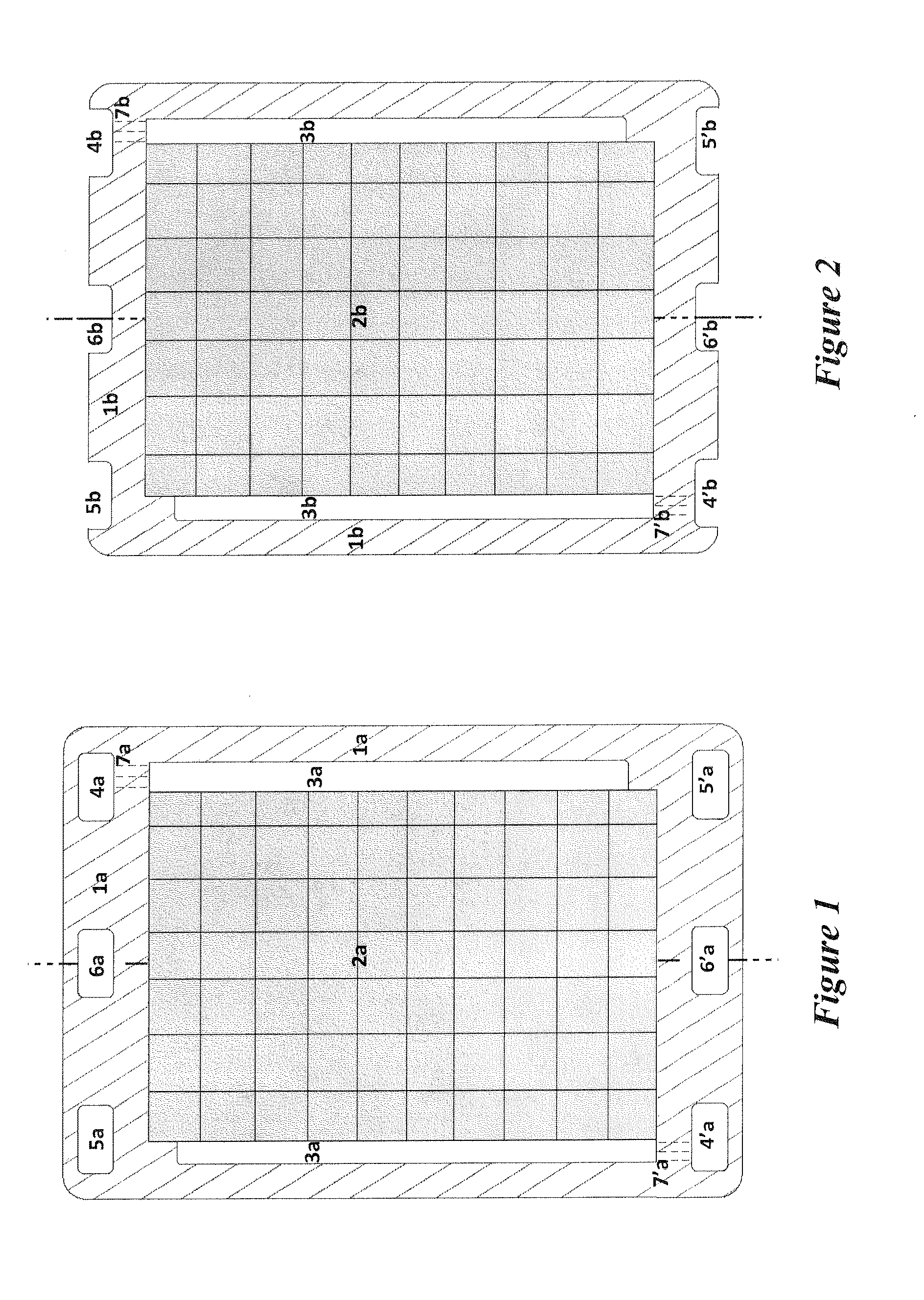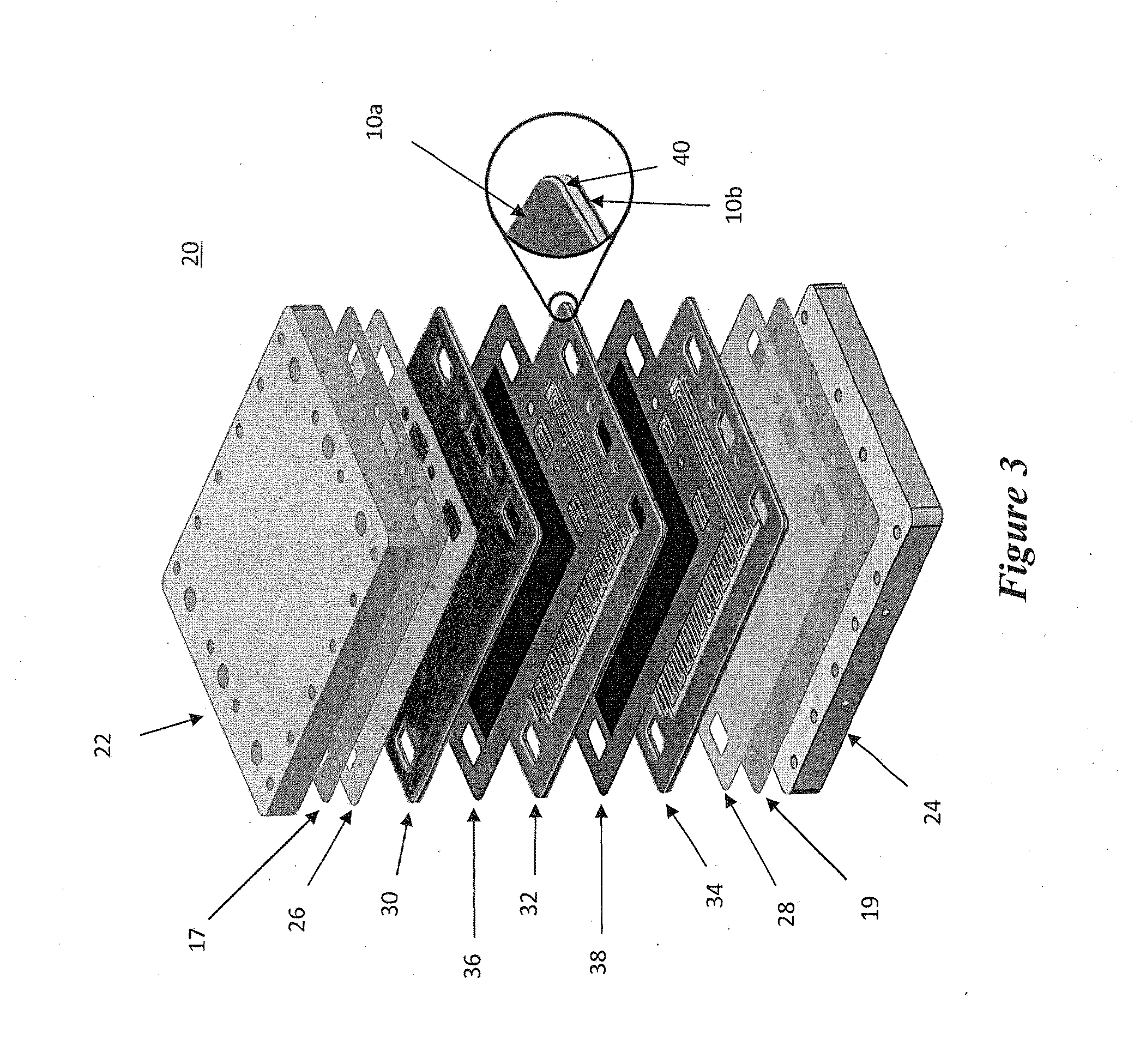Integrated sealing for fuel cell stack manufacturing
a technology of fuel cell stack and manufacturing method, which is applied in the direction of cell components, final product manufacturing, sustainable manufacturing/processing, etc., can solve the problems of poor manufacturing yield, poor manufacturing yield, and inconvenient so as to facilitate the disassembly and reassembly of the stack without undue effort or expense. , the effect of efficient and cost-effective manufacturing methodology
- Summary
- Abstract
- Description
- Claims
- Application Information
AI Technical Summary
Benefits of technology
Problems solved by technology
Method used
Image
Examples
Embodiment Construction
[0025]An illustrative embodiment of the present invention relates to a seal, and corresponding method of manufacture enabled by the physical properties of the seal, for PEM fuel cell (and other electrochemical) stacks providing low-cost manufacturing and reliable / durable operation in high temperature (e.g., 120° C. to 250° C.) and acidic environments. The seal and corresponding manufacturing methodology of the present invention are particularly suitable for high temperature (e.g., 120° C. to 250° C.) PEM stack assemblies, but may be utilized in other applications. Conventional stack seals and methodologies prior to the present invention were developed for low temperature (e.g., 100° C. or less) PEM stack assembly fuel cell applications. The seal of the present invention provides an elastomeric material portion, and a protective portion that protects the elastomeric material from the high temperature acidic environment, such as found in high temperature PEM fuel cells. The seal of th...
PUM
| Property | Measurement | Unit |
|---|---|---|
| Temperature | aaaaa | aaaaa |
| Temperature | aaaaa | aaaaa |
| Pressure | aaaaa | aaaaa |
Abstract
Description
Claims
Application Information
 Login to View More
Login to View More - R&D
- Intellectual Property
- Life Sciences
- Materials
- Tech Scout
- Unparalleled Data Quality
- Higher Quality Content
- 60% Fewer Hallucinations
Browse by: Latest US Patents, China's latest patents, Technical Efficacy Thesaurus, Application Domain, Technology Topic, Popular Technical Reports.
© 2025 PatSnap. All rights reserved.Legal|Privacy policy|Modern Slavery Act Transparency Statement|Sitemap|About US| Contact US: help@patsnap.com



